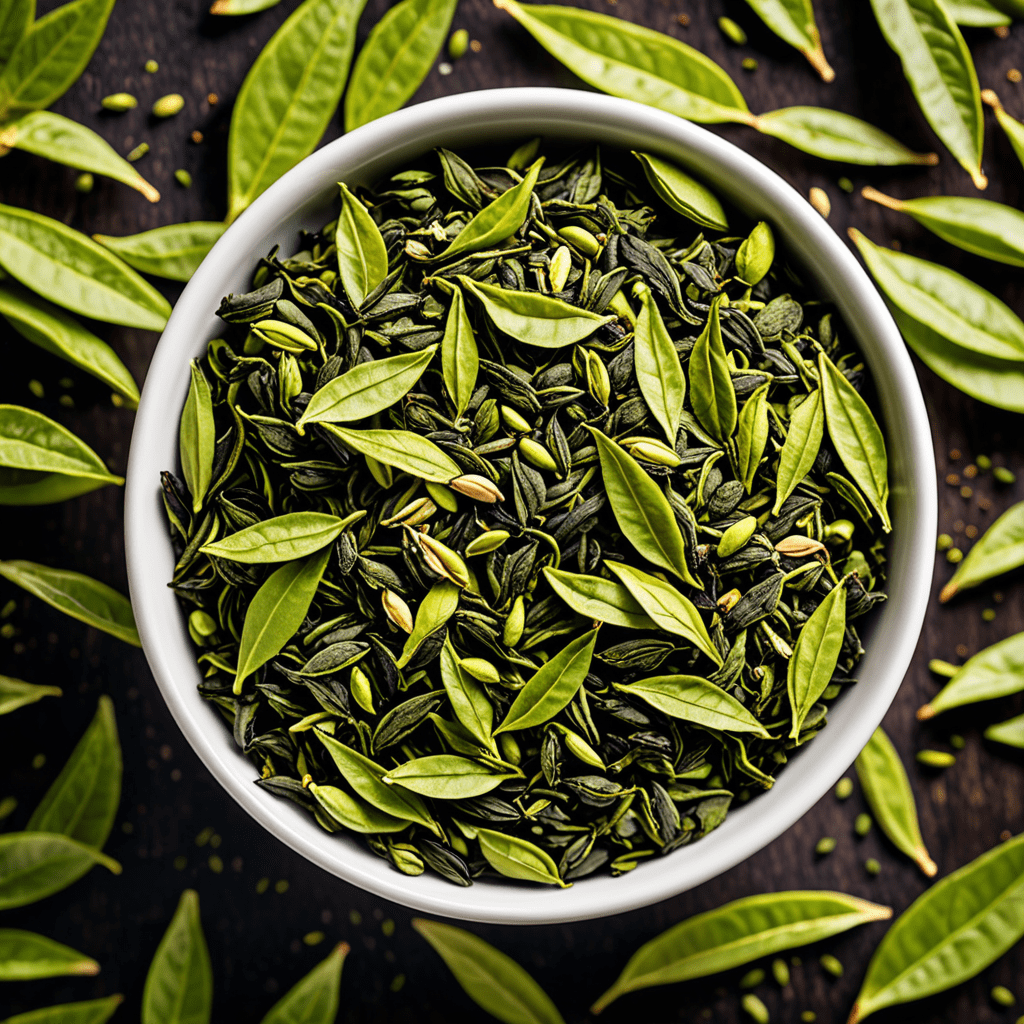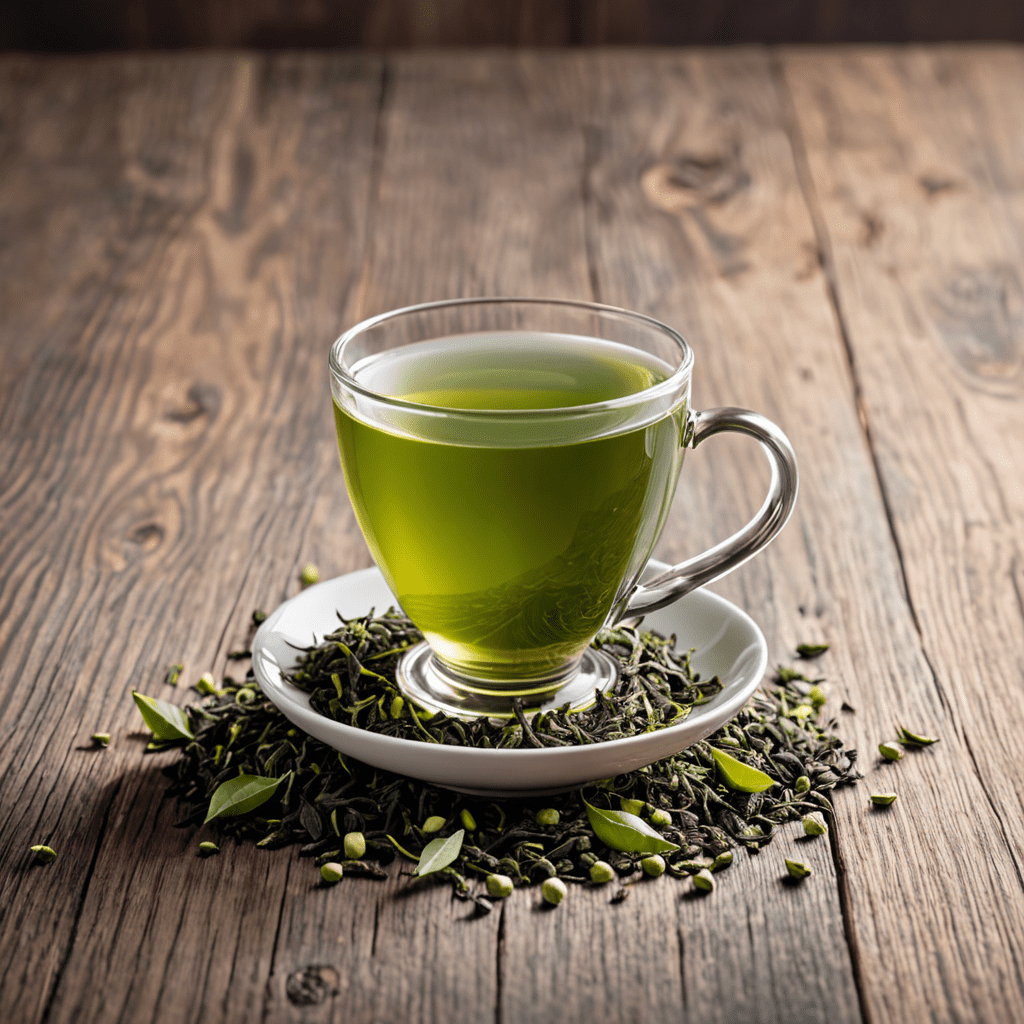
A guide to finding the healthiest brand of green tea for a nourishing cup
Introduction: Unveiling the Health Benefits of Green Tea
Green tea has gained immense popularity in recent years due to its numerous health benefits. Packed with antioxidants and nutrients, green tea is known to improve brain function, boost metabolism, and even lower the risk of certain diseases. If you’re looking to reap the benefits of green tea, it’s crucial to choose a brand that offers high-quality tea leaves and retains the maximum nutritional value. In this guide, we’ll explore the factors to consider when selecting the healthiest green tea brand for a nourishing cup.
Factors to Consider When Choosing a Green Tea Brand
1. Organic Certification: Prioritizing Purity and Sustainability
Opting for an organic green tea brand ensures that the tea leaves are cultivated without the use of synthetic fertilizers, pesticides, or other harmful chemicals. Organic certification guarantees that the tea is free from harmful residues, making it a healthier choice for your body and the environment. Look for brands that adhere to stringent organic standards and display proper certifications from reputable organizations.
2. Source and Processing: Tracing the Journey from Leaf to Cup
The origin and processing methods of green tea greatly impact its quality and health benefits. Look for brands that source their tea leaves from reputable tea estates known for their quality cultivation practices. Additionally, consider the processing methods used. Tea leaves that undergo minimal oxidation, such as steaming or roasting, retain higher levels of antioxidants and beneficial compounds.
3. Quality of Tea Leaves: Ensuring Optimal Nutritional Content
Green tea is made from the Camellia sinensis plant, but the quality of the leaves can vary significantly. Whole leaf teas are often regarded as superior to tea bags, as they contain larger, more intact leaves, which preserve the nutritional content. Check for telltale signs of quality, such as the presence of whole leaves, absence of dust or broken leaves, and vibrant color.
4. Flavor Profile: Balancing Taste and Health Benefits
While the health benefits of green tea are paramount, it’s also important to find a brand that offers a flavor profile you enjoy. Some brands may have subtle differences in taste due to variations in tea cultivars or processing methods. Consider trying different brands and flavors to find the one that suits your personal preferences while still providing the maximum health benefits.
5. Transparency and Trust: Evaluating Brand Reputation
When it comes to choosing green tea, it’s essential to opt for a brand that demonstrates transparency and reliability. Look for brands that openly share information about their sourcing, packaging, and processing methods. Check for third-party lab testing reports to ensure the absence of contaminants and the authenticity of the stated nutritional content. Online reviews and customer feedback can also provide insights into the brand’s reputation and the quality of their products.
6. Price: Balancing Cost and Value
While price should not be the sole determining factor, it’s important to consider the value you are getting for your money. Some premium green tea brands may come with a higher price tag, but they often offer superior quality and taste. However, there are also affordable options that provide excellent health benefits. Ultimately, striking a balance between cost and value is crucial when deciding on the healthiest green tea brand for your budget.
Frequently Asked Questions (FAQ)
Q1: How much green tea should I drink to enjoy its health benefits?
Each individual’s tolerance and reaction to green tea may vary. However, consuming 2-3 cups of green tea per day is generally considered safe and beneficial for most people.
Q2: Does the water temperature affect the health benefits of green tea?
Yes, the water temperature plays a role in extracting the optimal flavors and benefits from green tea. Generally, steeping green tea in water that is around 175°F (80°C) is recommended to avoid bitterness and preserve the delicate compounds.
Q3: Can I consume green tea if I have caffeine sensitivity?
Green tea naturally contains caffeine, although in lower amounts than coffee. If you have caffeine sensitivity, opt for decaffeinated green tea, which still offers various health benefits.
Q4: What is the best time to consume green tea?
While green tea can be enjoyed at any time of the day, many people prefer to drink it in the morning or early afternoon. Consuming green tea too close to bedtime may interfere with sleep due to its caffeine content.
Q5: Are there any side effects of drinking green tea?
Green tea is generally safe for most people when consumed in moderation. However, excessive consumption may lead to side effects such as insomnia, irritability, upset stomach, and increased heart rate. If you have any pre-existing medical conditions or are on medication, it’s advisable to consult with a healthcare professional before significantly increasing your green tea intake.
Q6: Can green tea help with weight loss?
Green tea has been shown to boost metabolism and increase fat oxidation, making it a popular choice among those looking to lose weight. However, it’s important to remember that green tea alone cannot guarantee weight loss. A balanced diet and regular exercise are key components of a healthy weight loss journey.


